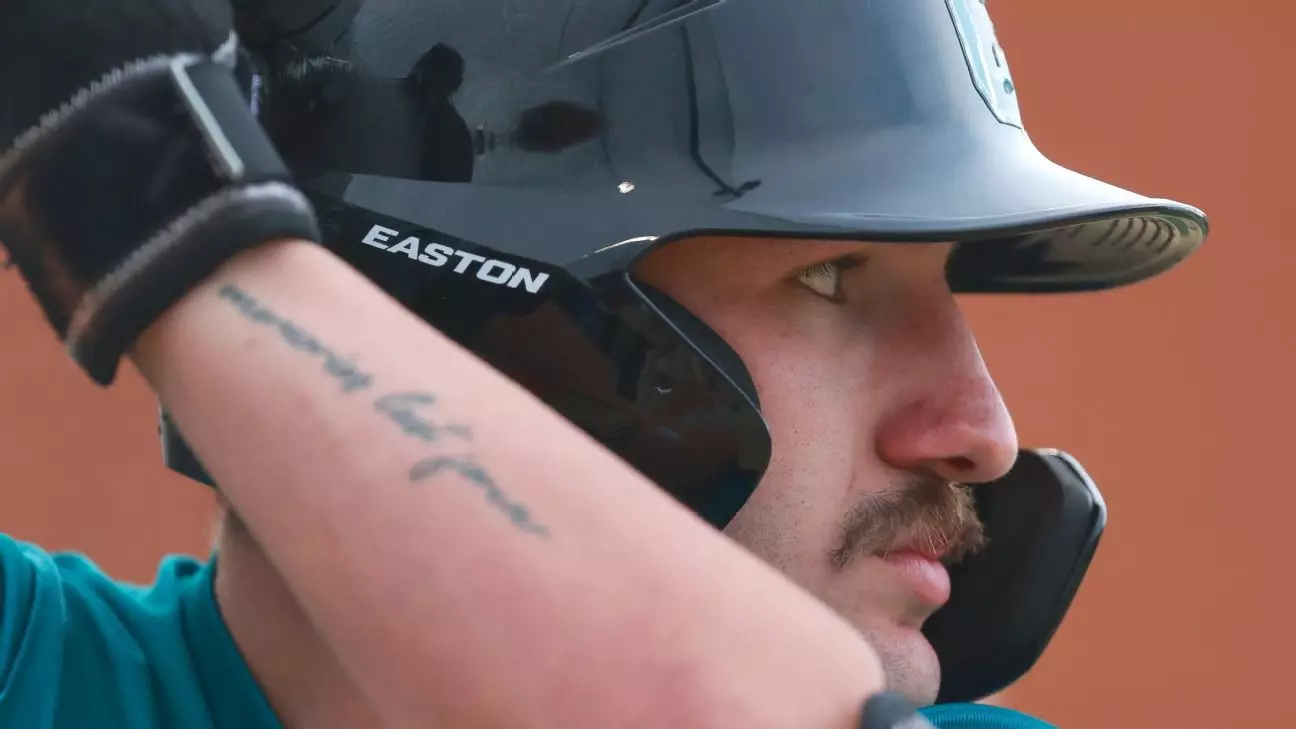The realm of professional sports is marked by both the soaring highs of triumph and the harrowing lows of scandal. Derek Bender, a former minor league catcher for the Minnesota Twins, epitomizes this dichotomy. His case has captured attention not merely due to the gripping details of alleged misconduct but also because it raises vital questions about integrity, reputation, and redemption in the world of sports.
The situation unfolded dramatically during a doubleheader on September 6, when it was reported that Bender allegedly tipped off hitters from the Lakeland Flying Tigers regarding the pitches being thrown by his team’s pitcher, Ross Dunn. While this seemingly minor act could be dismissed as mere banter between players, its ramifications proved to be substantial. The Lakeland team cashed in on this perceived advantage, scoring four runs in one inning and ultimately clinching victory to eliminate the Fort Myers Mighty Mussels from playoff contention.
Bender’s denial of the allegations, as highlighted in an interview with The Athletic, is firm and unyielding. He claims unequivocally, “I never gave pitches away. I never tried to give the opposing team an advantage against my own team.” The severity of the claims against him—accusations that could lead to a permanent ban from Major League Baseball—an ideal that every aspiring player hopes to achieve, hangs heavily over his head and has resulted in a severe backlash.
In the wake of intense scrutiny, Bender’s emotional toll became apparent. He described a feeling of isolation; a self-imposed exile from social media due to the avalanche of negative comments and even death threats he received as a result of the allegations. “I had to go dark for at least three days,” he remarked, emphasizing the psychological distress such accusations can cause even outside the sphere of criminality. Bender also admitted that he told teammates he was ready for the season to be over, a statement that was misinterpreted in the context of the incidents.
Bender further revealed that at times he jokingly suggested letting a ground ball pass him by, a remark taken lightly within the locker room but later scrutinized after the allegations surfaced. This incident illuminates how a simple jest can spiral into a web of misunderstanding and consequences in the high-stakes world of sports, where every action and word can be dissected under the public microscope.
As accusations and their fallout began to tarnish his reputation, Bender expressed deep concern over his relationships—both personal and professional. “It’s hard to hear my friends get questioned about me,” he lamented. The deep sense of betrayal and loneliness resonates as he navigates an inexplicable rift from former teammates who may now view him through a lens of suspicion rather than camaraderie.
In a noteworthy twist, it was reported that the Twins would have retained Bender in their organization if he admitted to the allegations and offered a public apology. However, his refusal to offer a blanket admission of guilt speaks volumes about his commitment to self-preservation and integrity, despite an intense pressure to conform.
“I knew there was no bluffing involved,” he stated, reflecting on the gravity of the decision he faced. This creates a duality of character—a player resolute in his innocence but also aware of the risks that lay ahead.
The journey toward redemption is seldom straightforward, and Bender appears determined to reclaim agency over his life. Now intending to play for the Brockton Rox in the independent Frontier League, he aims to revive his career while contending with the fallout from the ongoing MLB investigation. His agents, however, distanced themselves from him, reflecting the complexities surrounding athlete management in times of crisis.
“I’m not doing this as a last-ditch effort to get back into affiliate ball,” he declared in his interview, asserting that he is simply taking steps to regain control over his life. The push against despair becomes a driving force for him, transforming a moment of distress into a catalyst for personal renewal.
Bender’s narrative serves as a cautionary tale and an exploration of the blurred lines between humor and seriousness in professional sports. It raises pertinent themes about accountability, character, and the impact of public perception on an athlete’s career. In a sport where integrity is paramount, instances such as this can resonate long after the dust has settled.
As the investigation continues, the baseball community watches closely, and the world of sports reflects on the consequences of actions, intent, and the pathway to making amends. Whether Bender regains his place in professional baseball or not, he has shared a vital lesson about resilience in the face of adversity, demonstrating that redemption is not merely found in reinstatement but often in the unwavering strength of one’s character.

